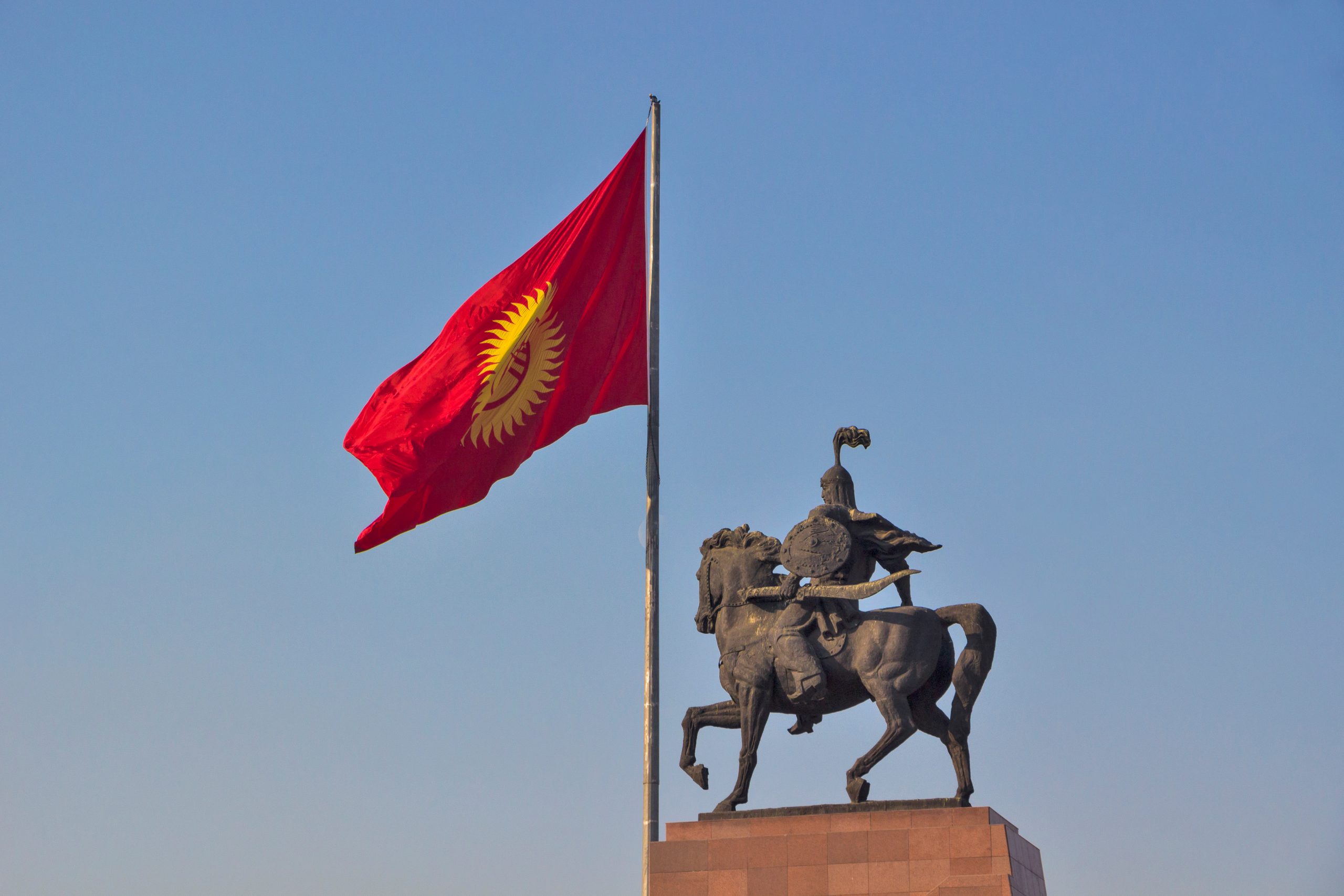The Fight for the Right to Speak Kyrgyz in Kyrgyzstan’s Capital
On October 22, Kyrgyzstani businessperson and political activist Umay Arykova published a video filmed by a young Kyrgyz man at the “Pizza Empire” restaurant in Bishkek on her Twitter account. In the video, the man asked if he could perform a karaoke version of a Kyrgyz song at the restaurant. In response, the manager said “company rules” forbid such performances, implying that Russian and English were the preferred languages. The young man threatened to sue the restaurant in response.
Though this may appear to be a minor conflict, it speaks to a much larger question of Kyrgyz national identity: Why shouldn’t a Kyrgyz citizen be allowed to perform a Kyrgyz-language song in their national capital?
Bishkek has long been known as one of Central Asia’s most Russian-speaking cities. When Soviet urbanization began, most of the new settlers in the republic’s capital Bishkek weren’t ethnically Kyrgyz, but Russians, Ukrainians, Germans, Ashkenazi Jews and people of other ethnicities commonly labeled “European” whose lingua-franca was Russian.
As late as 1989, Russian-speaking Europeans made up a vast majority of the population in the city. Following the dissolution of the Soviet Union, things began to change. In the decades after 1991, a rapid influx of ethnic Kyrgyz settlers from rural areas combined with higher birth rates among the Kyrgyz and the emigration of Russian-speakers to their respective nation-states, making the city 73 percent Kyrgyz as of today. Nevertheless, Russian has remained firmly entrenched as the language of everyday life in the city.
Not only is Russian common in Bishkek, its hegemony forces people from rural backgrounds to adapt and abandon their native Kyrgyz which is often perceived as a more primitive language of lower prestige associated with uneducated people. These anti-Kyrgyz sentiments are widespread, but they often come from the ethnically Kyrgyz residents of the city.
The Russian language enjoys a higher level of linguistic prestige among the richer, educated Kyrgyz people from Bishkek, a phenomenon attributed to a colonial mentality, an internalized attitude of cultural inferiority inherited from the Soviet era. Discussions of this mentality being a source of division in Kyrgyz society saw a sharp uptick on social media during the recent elections and the subsequent unrest that embroiled the country.
Central to this dispute was the rapid leadership succession. Sadyr Japarov’s quick ascension from prison to the White House was perceived as a tragedy by Bishkek’s creative class, whose members considered him a populist and nationalist politician primarily supported in rural areas. This manifested in widespread jokes such as “village people seize power, Bishkek people emigrate.” Such perceptions also led to heated discussions on social media that went along the lines of “Do we really understand what kind of country we live in? Do we really need to promote progressive values, globalism, and democracy when most of our compatriots don’t even seem to need them?”
Interestingly enough, the language issue was a big part of these discussions, with many Russian-speaking users writing that they suddenly felt detached from the country’s mainstream society due to their moderate or nonexistent Kyrgyz language skills. Language learning clubs were widely suggested as one potential solution to the linguistic divide.
We can only hope this moment of awareness helps normalize the speaking of Kyrgyz in Kyrgyzstan, so that situations like the Pizza Empire episode don’t repeat themselves again.
Todar Pruss is a sociolinguist and anthropologist at the Institute for Linguistic Studies of the Russian Academy of Sciences based in Astrakhan and primarily focused on Turkic languages.




